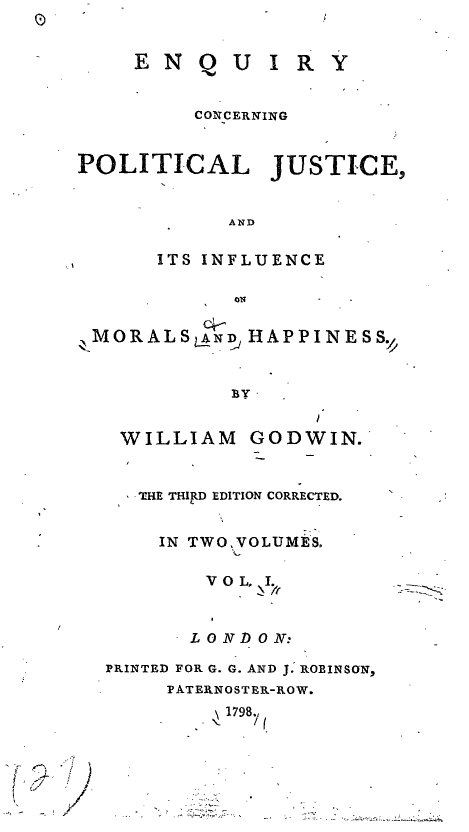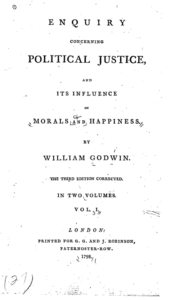Edmund Burke’s Reflections on the Revolution in France was a conservative response to the radical changes occurring in France in 1790. The French Revolution, if you’re unfamiliar, was a period of uprising among the middle and lower classes against the French monarchy. It was caused partly by France’s unstable economy, bad harvests that left most of the population starving, and the King’s incompetence. Revolutionaries aimed to overthrow the monarchy, write a new constitution, and abolish old customs.
Burke, a British politician, was against the Revolution and attacked its foundations. Burke viewed the revolutionaries as being motivated by greed and desiring to destroy all social, political, and religious institutions in place. He was appalled by the violence occurring throughout France, but what offended him most was the change the Revolution brought. Century old traditions that gave Europe character were being thrown away. Ancient chivalry was gone; no one would serve the monarchy with dignity. Burke wrote that “all the pleasing [old] illusions which made power gentle and obedience liberal, which harmonized the different shades of life, … are to be dissolved by this new conquering empire of light and reason” (77). He contrasted the sentimental idea of kings and queens ruling with these old, fundamental principles to that of dishonorable barbarians ruling with no plans for the future.
Without traditional rules and ways of life, countries lose their way. Burke argued that improvements should be built upon the foundations of the past. Instead of a revolution discarding everything learned prior, countries should improve by reforming what already exists. The new leaders of France changed too much and ignored the past. Burke detested this unstable government: “With them it is a sufficient motive to destroy an old scheme of things because it is an old one … As to the new, they are in no sort of fear with regard to the duration of a building run up in haste, because duration is no object to those who think little or nothing has been done before their time” (88). This government was not sustainable and did not care for the country like the old monarchy. Generations were no longer linked due to the constantly changing state, which Burke said is “ten thousand times worse” than states that are prejudice and stubborn.
Burke also bemoaned the lack of respect for the monarchy and upper classes in France. He wrote that “when kings are hurled from their thrones … and become the objects of insult to the base and of pity to the good, we behold such disasters in the moral” (80). Louis XVI did not choose to be king; he was born into it. Therefore, Burke said he’d been treated unfairly and should not be blamed for all the trouble in France. The ideas of the Revolution corrupted the minds of people and made them irrational. The crimes of the old regime were lesser than the crimes of the new, which justifies murder for public benefit.
However, the English differed from the French. The English still valued their old traditions, revered priests, and respected the nobility. Religion was connected to the state and provided comfort for people while preventing selfishness. Burke believed in a social contract where society was a “partnership not only between those who are living, but between those who are living, those who are dead, and those who are to be born” (96). This means that society relies on not only the work of those alive now, but also those from the past. The revolutionaries were disregarding the past and disrupting the social contract that has been in place for centuries.

While Burke made many convincing arguments against the Revolution, I think there are a few areas he could have elaborated. At least in this excerpt, Burke doesn’t acknowledge the suffering of the lower and middle classes. Most people had little to eat, while the nobility and monarchy still had plenty of food. France was a highly divided society, and Burke did not seem to think anything wrong of people being born in a low class. Burke defended the King as being “misfortunate” to be born a ruler, so he should also defend those who were unfortunate enough to be born poor. Burke could have offered alternatives to a revolution to help feed those people. Also, I think he was too sentimental and nostalgic about the hereditary monarchy and nobility.
Burke portrayed the nobility as being honorable and dignified, but William Godwin saw them differently in Caleb Williams. Both works were written within a few years of each other, but they show different views of society. William Godwin’s novel tells of the abuses of the powerful and wealthy against the poor and weak. Godwin was more liberal than Burke, who saw no evidence of this tyranny that Godwin thought existed in society. Both believed in justice, with Burke saying that “if … the king and queen of France … were inexorable and cruel tyrants, … I should think their captivity just … The punishment of real tyrants is a noble and awful act of justice” (83). However, unlike Burke, Godwin felt that the justice system in place was unfair and favored those in power, similar to how the French revolutionaries felt about the monarchy.
Godwin portrayed the flaws of legal institutions in Caleb Williams. Mr. Tyrrel, as his name suggests, was a tyrant that led to the death of his cousin and destroyed the lives of the Hawkinses by manipulating laws to his advantage. Mr. Falkland also used the law to frame Hawkins for killing Mr. Tyrrel and frame Caleb for stealing. When describing Mr. Falkland, Caleb said that “he exhibited, upon a contracted scale, … a copy of what monarchs are, who reckon among the instruments of their power prisons of state” (Vol. II, Ch X). Caleb saw in Mr. Falkland the same abuses that the French people saw in their King.
Both Mr. Tyrrel and Mr. Falkland were guilty, but their high social standing allowed them to abuse others with the law on their side. Caleb noted this imbalance of power: “visit the scenes of our prisons! Witness their unwholesomeness, their filth, the tyranny of their governors, the misery of their inmates! After that, show me the man shameless enough to triumph, and say, England has no Bastille!” (Vol. II, Ch. XI). This relates to the situation in France and how people were unhappy with the monarchy that Burke defends in his work. Godwin believed legal institutions should not be used to subvert justice by the powerful.
Burke’s writings on the French Revolution sparked an intellectual debate. His conservative ideas contrasted with the liberal ideas of Thomas Paine’s Common Sense. Godwin also wrote Caleb Williams in addition to Political Justice to argue for a fairer justice system. Reflections on the Revolution in France was an important piece in 1790 and remains significant today.
Discussion Questions:
- Do you think Falkland represents the evils of the social system, just as the King did in the French Revolution?
- Do you think the French Revolution had an influence on William Godwin and the writing of Caleb Williams?
- How does Godwin’s view of political justice differ from Burke’s?




